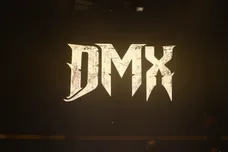On his 2004 debut album The College Dropout, Kanye West lamented how “they say you can rap about anything except for Jesus.” Fast forward to today, where Ye has fully embraced Christianity into his life and his artistry. An interesting development, given how his earlier work was stymied by a resistance toward the creative exploration of his spirituality. It might have been tempting to conclude that Kanye West has since turned the lock and sparked a religious awakening in hip-hop’s collective consciousness. In reality, religious imagery has been present for years, a driving thematic force that many artists have explored in various ways.
That’s not to discredit Kanye’s criticisms made in “Jesus Walks,” but rather to examine the broader scope of religion’s role in rap music through a specific lens. A lens that, for the sake of this analysis, will not be covering the subgenre of Christian rap. Though record labels may not have deemed it marketable, many rappers have looked to God in their writing. Others have found themselves tempted, or otherwise ensnared by the dark will of The Devil. As two universally iconic representations of good and evil, the pair tend to pop up on occasion -- spitting bars with a surprisingly adept pen game. It’s not common, but it’s certainly interesting to see an artist take their theological conflicts into the booth -- especially when they alter their cadence to truly immerse themselves into the all-powerful role.
Ras Kass - Interview With A Vampire
THE PLAYER WITH A TRILLION YEARS OF GAME
In 1999, Ras Kass played double duty in the ambitious and thought-provoking “Interview With A Vampire,” a sprawling epic that paints the picture of an ancient struggle. Which is to say, a mortal man contending with powers beyond his comprehension, essentially rendered to a participant in a high-stakes battle-of-wits. As himself, Ras is suddenly faced with the opportunity to converse with God, using the opportunity to pose the existential questions that plague him. For the most part, God is an open book. Despite his claims that the “human mind's flaw was limited comprehension,” he seems willing to lay out the universes’ mysteries, dating back to the world’s creation. “I'm the big bang theory and evolution, been there, done that from revolution to prostitution,” raps “God.” “The first and final solution, the Quran, Bible and Vedas are only tools.”
The mic is eventually snatched by Satan, self-professing to be “the player with a trillion years of game” and swiftly presenting counterpoints to God’s declarations. What follows is an intricate debate between three separate forces with distinctive beliefs, all of which are presented quite eloquently by Ras Kass. In the end, it’s not so much a reflection of his own beliefs but rather an attempt to play “devil’s advocate” and examine several varying religious theories. That’s not to say his interpretations should be taken as gospel -- in fact, some lines might prove controversial to some listeners -- but the presentation of his ideas is brilliantly rendered in one of the rap game’s most complex conceptual tracks ever.
Sticky Fingaz - Oh My God
Where “Interview With A Vampire” tackles Ras’ questions on an existential level, Sticky Fingaz’ “Oh My God” finds the rapper looking inward at his own fears and insecurities. What it lacks in complexity compared to Ras’ “Interview,” it makes up for in a refreshing directness. Taking place following the death of his friend, Sticky immediately turns to God for answers -- answers he swiftly receives. Like Ras, Sticky alters his voice to portray the big man upstairs, a soothing and confident counterpoint to the frantic cadence of Kirk Jones. As Ras sought existential and philosophical enlightenment, so too does Sticky, whose questions center around the injustice of human suffering. As God explains, “in order for anything to exist, so must its opposite / how can there be left if there was never right? How can something know death if it never knew life?”
A simple takeaway, but one that’s effectively presented by way of Sticky and God’s stark cadential contrasts. There’s a serenity to be found in gaining such a higher understanding, though doing so often requires one to undergo a personal crisis. For Sticky, the inciting incident that prompted his turn to God was a tragedy. Given the violent urges he succumbed to in earlier chapters of the Black Trash saga, it’s a wonder he didn’t turn his gaze downstairs.
DMX - Damien
NOTHIN' BUT TROUBLE AHEAD
Given the darker themes and sonic aesthetics throughout hip-hop music, explorations of the devil and his many forms have been a little more frequent. One of the most notable examples arrived by way of DMX’s “Damien” trilogy, which featured chapters on It’s Dark And Hell Is Hot, Flesh Of My Flesh, Blood Of My Blood, and The Great Depression. Unlike the many songs that allude to Lucifer and his looming presence, DMX took it upon himself to imagine the great deceiver in his own image, physically altering his voice to a grotesquely unsettling pitch. An interesting observation about X’s interpretation is how Damien operates by way of give-and-take. Throughout the saga -- save for the climactic chapter -- our beloved antihero finds himself exchanging violent services for materialistic gains. And what’s most nefarious throughout is the way Damien manages to gain X’s trust through familiarity, speaking with similar vernaculars and possessing a keen understanding of street dynamics; he’s no larger-than-life outsider concerned with grander concepts, but rather singularly honed in on one man’s moral corruption.
A deeper reading of DMX’s debut album It’s Dark & Hell Is Hot paints a picture of a complex man caught between his darker urges and his deep-rooted faith. While further analysis of the “Damien” trilogy can be explored right here, one of the key takeaways is the proverbial apple, used to ensnare X into the Devil’s employ: the promise of fame and fortune. For another lyricist who has long lined his lyricism with violent imagery, Eminem, similar struggles were depicted on the Relapse bonus track “My Darling.” To be fair, there are some who theorize that Em’s haunting back-and-forth did not in fact involve the Devil, but rather his alter ego Slim Shady; the Eminem lore runs deep. In any case, it’s hard to deny the deep-voiced visitor’s devilish characteristics, from his cadence to his absent morality. As such, interpreting Em’s struggle as a crisis of faith is a fair conclusion to draw, and viewing it through that lens makes “My Darling” feel thematically similar to DMX’s “Damien.”
Eminem - My Darling
It feels as if The Devil embodies all of the temptations a rapper must face on their road to stardom. It’s not exactly unsurprising to see the material gain associated with the demonic. In many myths, ambitious souls strike head to the crossroads in order to summon dark forces and barter for upward mobility. Faust and the bargain which bears his name has long been a staple in literature, with Christopher Marlowe’s 1620 stage play Doctor Faustus chronicling a necromancing doctor’s desire to gain infinite enlightenment -- and the negative consequences that ultimately befall his soul. Both Em’s “My Darling” and DMX’s “Damien” come to a similar logical conclusion, seeped in supernatural mythology while forcing the protagonists to grapple with their once-held beliefs.
Of course, both God and Devil are recurring players in hip-hop lyricism, manifesting in myriad different ways. Deeper thematic analysis is certainly not always necessary, especially as many rappers tend to operate following the simple dichotomy that God is good and Satan is evil. Whenever an artist does decide to take on the adventurous task of personifying a diety on wax, however, it always leads to an emotionally draining and cinematic experience.







